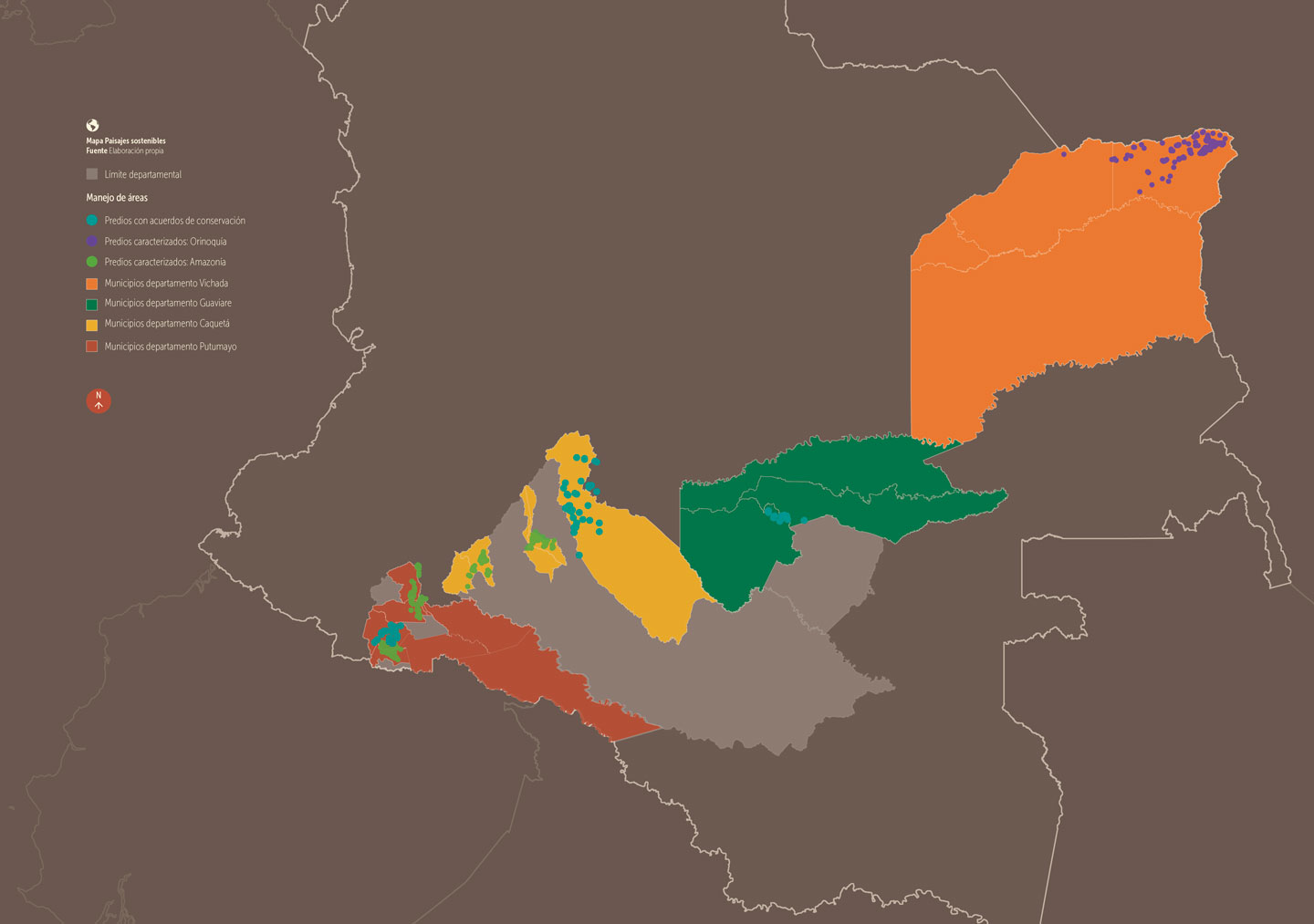For agriculture that supports biodiversity conservation
In the landscapes where WCS is present, including the Amazonian Piedmont and the Orinoquía region, we work to promote productive systems and value chains that minimize environmental impact.
Some habitats in these regions have been transformed by communities to develop crops that provide them with income.
WCS ensures that, over time, these production systems adopt a more sustainable approach, reducing deforestation and the loss of other natural ecosystems. This way, activities can achieve better yields and benefits while also contributing to biodiversity conservation.
One of the key initiatives supported by the organization focuses on the production of deforestation-free cocoa in the municipalities of Guaviare, Caquetá, and Putumayo. This is achieved through sustainable production systems, financial instruments, and monitoring and traceability systems that enhance livelihoods and improve farmers' access to specialized markets.
In this context, agroforestry models have been implemented—not only as a productive strategy but also as a means to provide habitat for wildlife species and improve connectivity between fragmented forests.
To assess the impact of agroforestry systems on biodiversity conservation, several Amazonian cocoa producer associations have worked with WCS to conduct participatory acoustic bird monitoring on the farms of various producers.

WCS also works alongside cashew growers in Vichada, specifically in the Bita River Basin. With them, we collaborate on sector growth plans and the design of landscape management strategies to mitigate impacts on biodiversity.
Similarly, in the Coffee Axis—Andean region, a comparable effort is underway with Hass avocado producers. Regarding this product, WCS supports Zero Deforestation agreements promoted by businesses and organizations such as Tropical Forest Alliance, the Ministry of Environment and Sustainable Development, the Ministry of Agriculture and Rural Development, and Fondo Acción. Similar commitments already exist for the palm oil, cocoa, beef, dairy, coffee, and timber supply chains.
WCS also strengthens the capacities of meliponiculturists by promoting better practices for breeding native stingless bees, processing hive products, and managing associated plants, aiming to reduce the impact on forests.
Additionally, conservation agreements have been signed to ensure that producers allocate part of their farms to environmental protection, safeguarding many hectares of land. In return, they receive advice and support to enhance productivity on their land.
Translated with AI support